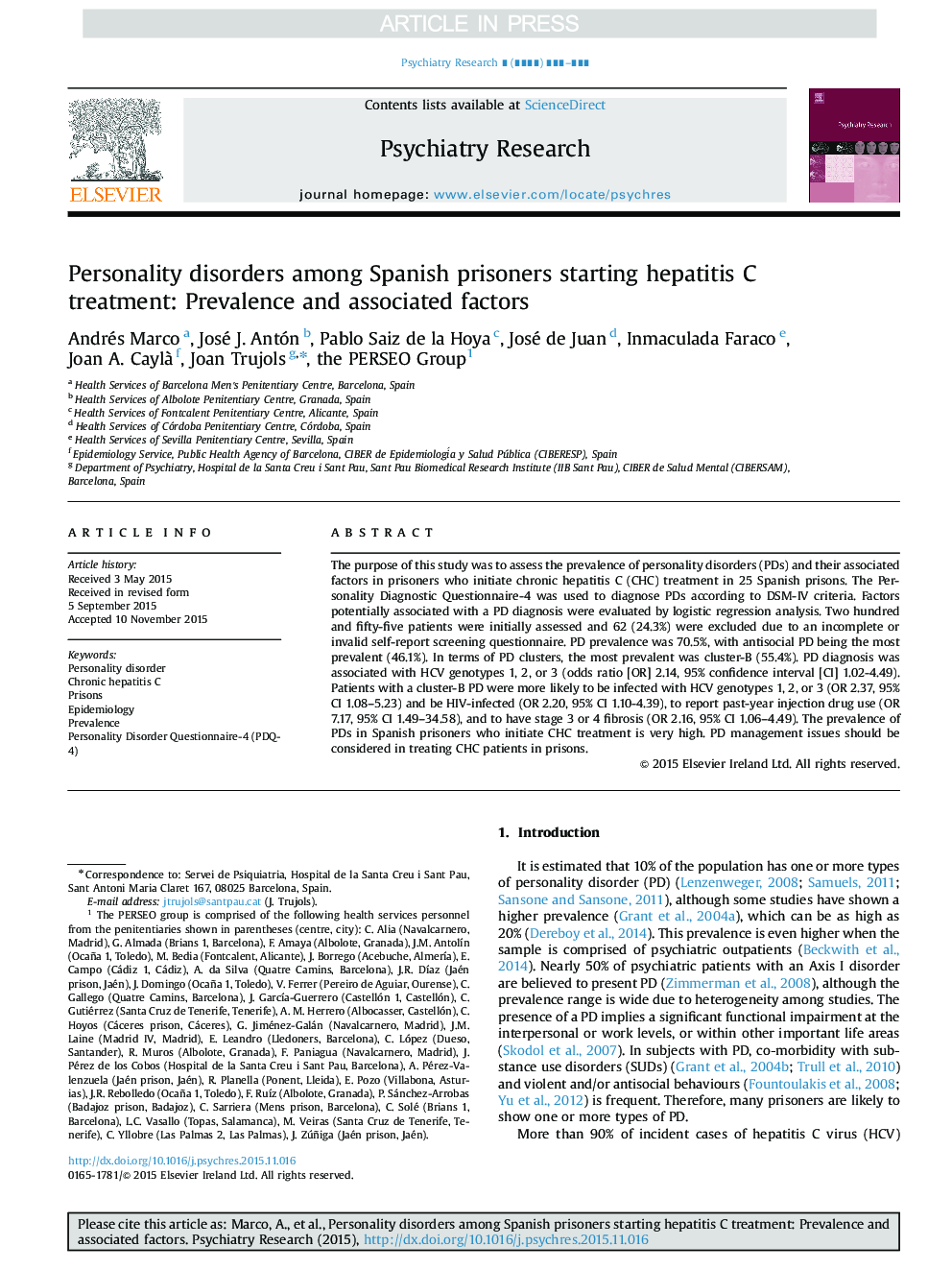| Article ID | Journal | Published Year | Pages | File Type |
|---|---|---|---|---|
| 6813676 | Psychiatry Research | 2015 | 8 Pages |
Abstract
The purpose of this study was to assess the prevalence of personality disorders (PDs) and their associated factors in prisoners who initiate chronic hepatitis C (CHC) treatment in 25 Spanish prisons. The Personality Diagnostic Questionnaire-4 was used to diagnose PDs according to DSM-IV criteria. Factors potentially associated with a PD diagnosis were evaluated by logistic regression analysis. Two hundred and fifty-five patients were initially assessed and 62 (24.3%) were excluded due to an incomplete or invalid self-report screening questionnaire. PD prevalence was 70.5%, with antisocial PD being the most prevalent (46.1%). In terms of PD clusters, the most prevalent was cluster-B (55.4%). PD diagnosis was associated with HCV genotypes 1, 2, or 3 (odds ratio [OR] 2.14, 95% confidence interval [CI] 1.02-4.49). Patients with a cluster-B PD were more likely to be infected with HCV genotypes 1, 2, or 3 (OR 2.37, 95% CI 1.08-5.23) and be HIV-infected (OR 2.20, 95% CI 1.10-4.39), to report past-year injection drug use (OR 7.17, 95% CI 1.49-34.58), and to have stage 3 or 4 fibrosis (OR 2.16, 95% CI 1.06-4.49). The prevalence of PDs in Spanish prisoners who initiate CHC treatment is very high. PD management issues should be considered in treating CHC patients in prisons.
Related Topics
Life Sciences
Neuroscience
Biological Psychiatry
Authors
Andrés Marco, José J. Antón, Pablo Saiz de la Hoya, José de Juan, Inmaculada Faraco, Joan A. Caylà , Joan Trujols, the PERSEO Group the PERSEO Group,
